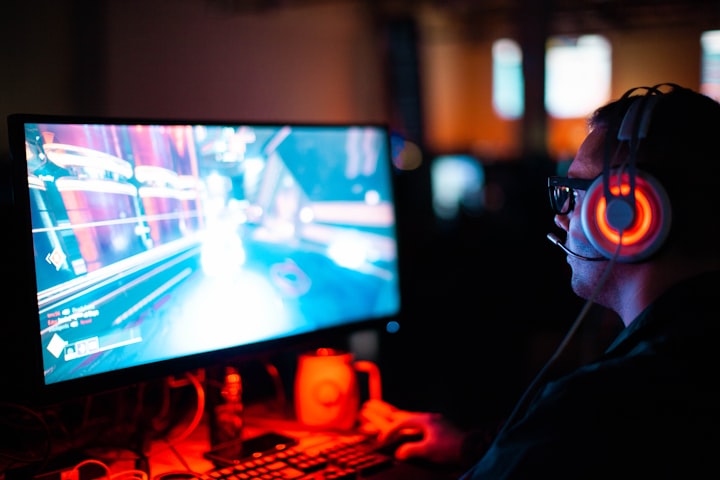The Psychology of Gaming:
How Video Games Affect Our Behaviour and Mental Health
Video games have become a ubiquitous part of our modern culture, with millions of people of all ages and backgrounds playing games on a regular basis. While some people see video games as nothing more than a fun and harmless pastime, others worry about the potential negative effects that gaming may have on our behaviour and mental health. In this article, we'll take a closer look at the psychology of gaming, exploring how video games affect us and what the science has to say about it.
First, let's talk about why we play games. There are many reasons why people enjoy playing video games, and different games may appeal to different people for different reasons. For some, gaming is a way to escape from the stress and pressures of everyday life, providing a sense of relaxation and enjoyment. For others, it's a way to socialize and connect with friends, whether through online gaming communities or in-person multiplayer games. And for many, gaming is simply a fun and challenging hobby that provides a sense of accomplishment and satisfaction.
But what about the potential downsides of gaming? Some critics have argued that video games can lead to addiction, aggression, and other negative behaviours. However, the research on this topic is far from conclusive, and there are many different factors that can influence how gaming affects us.
One area of research that has received a lot of attention in recent years is the link between video games and aggression. Some studies have suggested that playing violent video games may increase aggressive thoughts, feelings, and behaviours, particularly in children and adolescents. However, other studies have found no such link, and the evidence is mixed overall. It's important to note that correlation does not equal causation, and there may be other factors that contribute to both gaming and aggressive behaviour.
Another potential concern is the impact of gaming on mental health. While some studies have suggested that excessive gaming may be linked to depression and anxiety, others have found no such association. It's possible that gaming may have different effects on different people, depending on factors such as age, gender, and personality traits.
Despite these concerns, there is also evidence to suggest that gaming can have positive effects on our mental health and well-being. For example, some studies have found that playing video games can improve cognitive skills such as attention, spatial reasoning, and decision-making. Gaming may also provide a sense of social support and connection, particularly for people who struggle with social anxiety or who have difficulty making friends in real life.
Ultimately, the impact of gaming on our behaviour and mental health is complex and multifaceted. While there may be some risks associated with excessive or problematic gaming, there are also many potential benefits to be gained from playing games in moderation. The key is to be mindful of our gaming habits and to strive for a healthy balance between gaming and other aspects of our lives.
So what can we do to ensure that gaming remains a positive and enjoyable activity? Here are a few tips:
Set limits on your gaming time: It's important to make sure that gaming doesn't take over your life or interfere with other important activities such as work, school, or relationships. Set clear boundaries on how much time you spend gaming each day or week, and stick to them.
Choose games that are appropriate for your age and interests: Not all games are created equal, and some may be more suitable for certain ages or personality types than others. Be mindful of the content and themes of the games you play, and choose games that align with your values and interests.
Take breaks and engage in other activities: It's important to give your brain and body a break from gaming on a regular basis. Make sure to take breaks and engage in other activities such as exercise, socializing, or creative hobbies.
Be aware of the potential risks and benefits of gaming: Educate






Comments
There are no comments for this story
Be the first to respond and start the conversation.